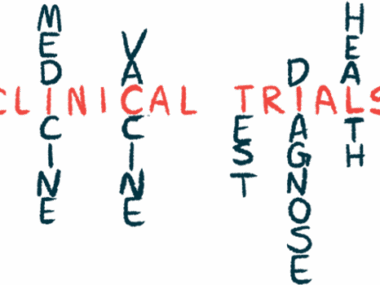Statement backing EU patient representation gains more support
Policymakers urged to safeguard key group when weighing regulatory decisions
Written by |

More than 70 additional patient organizations have joined a joint statement from the European Organization for Rare Diseases (EURORDIS) and the European Patients’ Forum (EPF) urging European policymakers to safeguard patient representation in regulatory decisions affecting medicines.
“Patient representatives are not passive participants, but expert, committed members of EMA [European Medicines Agency] committees,” Virginie Bros-Facer, CEO of EURORDIS, said in a EURORDIS press release. “Voting rights are not symbolic – they recognise the value of our contribution and our role as equal partners.”
EURORDIS, an alliance representing over 1,000 patient organizations, is focused on improving the lives of people with rare diseases like AADC deficiency. It counts Rare Diseases Ireland and Rare Diseases Sweden among the latest co-signatories.
This renewed support comes amid ongoing negotiations following a recent agreement by the European Council regarding changes to regulatory processes in the European Union (EU). As the Council enters negotiations with two other branches of EU governance, the Parliament and the Commission, EURORDIS and EPF caution that the agreement does not ensure adequate representation from patients.
Patient representation results in unique insights, groups say
Originally published in March, the joint statement calls for policies that not only protect current patient participation, but also expand the role of patients in the regulatory lifecycle of medicines.
“With so many new organisations joining this call, the message is clear: we, patient organisations, must remain equal partners in the regulatory lifecycle of medicines,” said Marco Greco, president of EPF.
Over the past 25 years, the EU has incorporated more patient input in regulations.
“People living with a rare disease have spent decades earning their place in the regulatory process – moving from exclusion, to consultation, to becoming integral to the system,” Bros-Facer said.
Today, patient representatives serve on the EMA’s management board and participate in several scientific committees. These include the Committee for Orphan Medicinal Products, the Paediatric Committee, and increasingly, the Committee for Medicinal Products for Human Use, which advises on medication approvals.
EURORDIS and EPF advocate for further expansion, such as including patient representatives on additional relevant bodies and ensuring they receive appropriate training and compensation for their contributions.
Without involving patient communities meaningfully and truly listening to their experiences and needs, the legislation risks falling short of its goals.
These policies are warranted given the unique insights patients provide, according to EURORDIS and EPF.
“Patients have a thorough and often unique understanding of their disease or condition, the benefits and side effects of treatment, and its impact on their daily lives,” the organizations wrote in their statement.
A 2022 EMA study found that in more than half of cases, patient contributions prompted procedural coordinators to reflect more deeply on regulatory decisions.
In coming weeks, the Council will negotiate with other EU leaders — the final step in developing legislation that will shape EMA patient representation, according to EURORDIS.
“As the Inter-institutional negotiations approach, we call on the European Parliament and the Council to recognise and protect the meaningful and robust involvement of patient representatives,” Greco said. “Without involving patient communities meaningfully and truly listening to their experiences and needs, the legislation risks falling short of its goals.”






